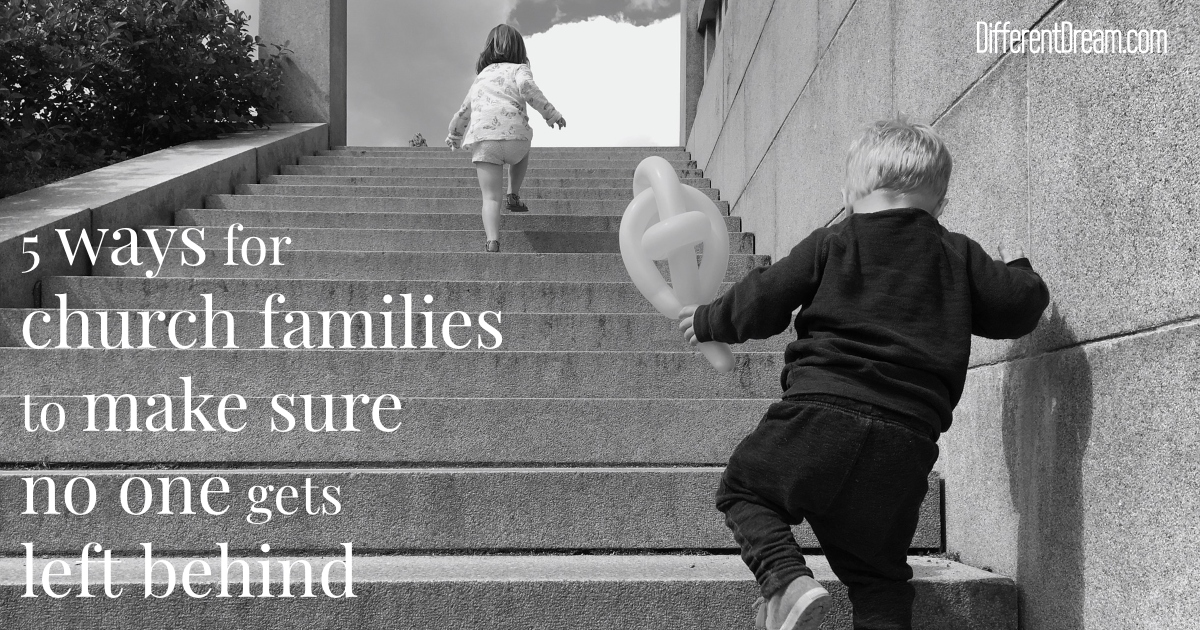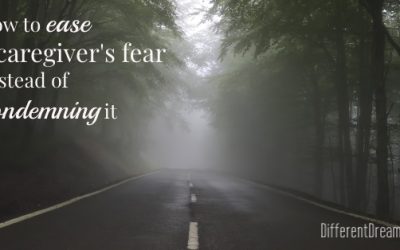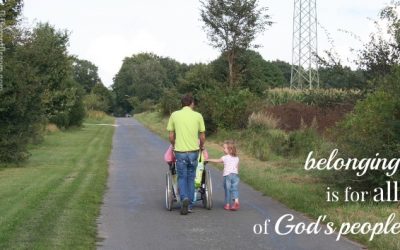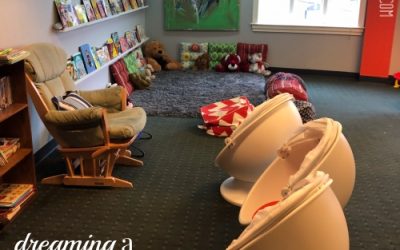Church Family Means No One Gets Left Behind

Church family means no one gets left behind. Guest blogger Mark Arnold tweaks and applies the famous Lilo & Stitch to churches. He offers tips to children and youth ministry workers who want to be sure that children and youth with disabilities and special needs aren’t left behind as in person activities resume.
Like many children’s and youth workers, I love a good Disney movie. A well-known quote from Lilo & Stitch keeps coming to mind whenever I think about the return to in-building children’s and youth work.
“Ohana means family. Family means no one gets left behind or forgotten.”
So often, families of children with special needs or disabilities find themselves forgotten, overlooked, or not considered when plans are made. It is unsurprising that many church leaders and children’s and youth teams are excitedly opening the church doors again. Personally, I’ve been saddened to people posting on social media about how thrilled they are to no longer run Zoom sessions. For families who cannot, for all kinds of reasons, attend in-building activities, this attitude is harmful. It’s another form of exclusion.
As the pandemic eases, let’s not choose between in the building or online children’s and youth work. Let’s not create exclusion by cutting off families who were able to connect to church like never before during COVID. Instead, let’s make sure that church family means no one gets left behind or forgotten.
These 5 Cs can help with this:
1. Communicate
Ask families what they prefer, what they are able to access, what resources they need to join in. Make sure you are including them as you plan, remembering the truth of a phrase used by the disabled community: Nothing about us without us.
2. Community
Recognise that your community includes families that come to the building and families that connect from home. Structure your activities in ways that link both parts of this community together so that they can enjoy being involved wherever they are.
3. Camera
A hybrid or blended offering isn’t about providing an in-building program and broadcasting it via a static camera at the back of the room. It’s about interaction, giving families at home a chance to contribute, share and lead. It’s about having the camera moving around to see what is happening in the building. It’s about broadcasting what’s happening at home on a screen with a sound system, making it a truly interactive experience for everyone.
4. Creativity
Are you doing something crafty or creative? Drop off a bag of resources to families joining from home so that they have everything those in the church building. The resources could include craft supplies, a program, or a timetable. For those with special needs, make these items visual by including symbols and photos.
5. Check-in and Dismissal
Chatting with families as they drop off and collect their children from in-building sessions is common. Why not do the same for families connecting online? Pick up the phone or pop round for a chat rather than always dropping them an email. Ask them how the session went for them, what worked and what didn’t, what they need from you next time, how they would like to take part next time.
These tips and ideas can help you as churches open and plan for a new normal. Make sure to remember that church family means no one gets left behind or forgotten. Let’s Only then can churches ensure that families involved in the building or at participating from home feel connected and experience a sense of community.
Do you like what you see at DifferentDream.com? You can receive more great content by subscribing to the monthly Different Dream newsletter and signing up for the daily RSS feed delivered to your email inbox. You can sign up for the first in the pop up box and the second at the bottom of this page.
By Mark Arnold
Mark Arnold is the Additional Needs Ministry Director at Urban Saints, a leading national Christian children’s and youth organization. He is co-founder of the Additional Needs Alliance, a national and international advocate for children and young people with additional needs or disabilities. Mark is a Churches for All and Living Fully Network partner, a member of the Council for Disabled Children and the European Disability Network. He writes an additional needs column for Premier Youth and Children’s Work (YCW) magazine and blogs at The Additional Needs Blogfather. He is father to James, who has autism spectrum condition, associated learning disability, and epilepsy. To find out more about how Mark’s work can help you, contact him at: marnold@urbansaints.org or @Mark_J_Arnold
Subscribe for Updates from Jolene
Related Posts
Caregivers Fear the Future: 3 Ways to Walk Alongside Them
Caregivers fear the future, especially those caring for children who will outlive them. Here are 3 practical ways to help ease fear in caregiving families.
Belonging: The Heartbeat of Inclusion
Shelly Christensen believes that belonging is the heartbeat of inclusion, and she examines biblical truths that prove the rightness of disability inclusion.
Dream a New Special Needs Ministry Dream
Do you have a special needs ministry dream for your church? Guest blogger Marnie Witters has ideas about how to start realizing that dream.






0 Comments